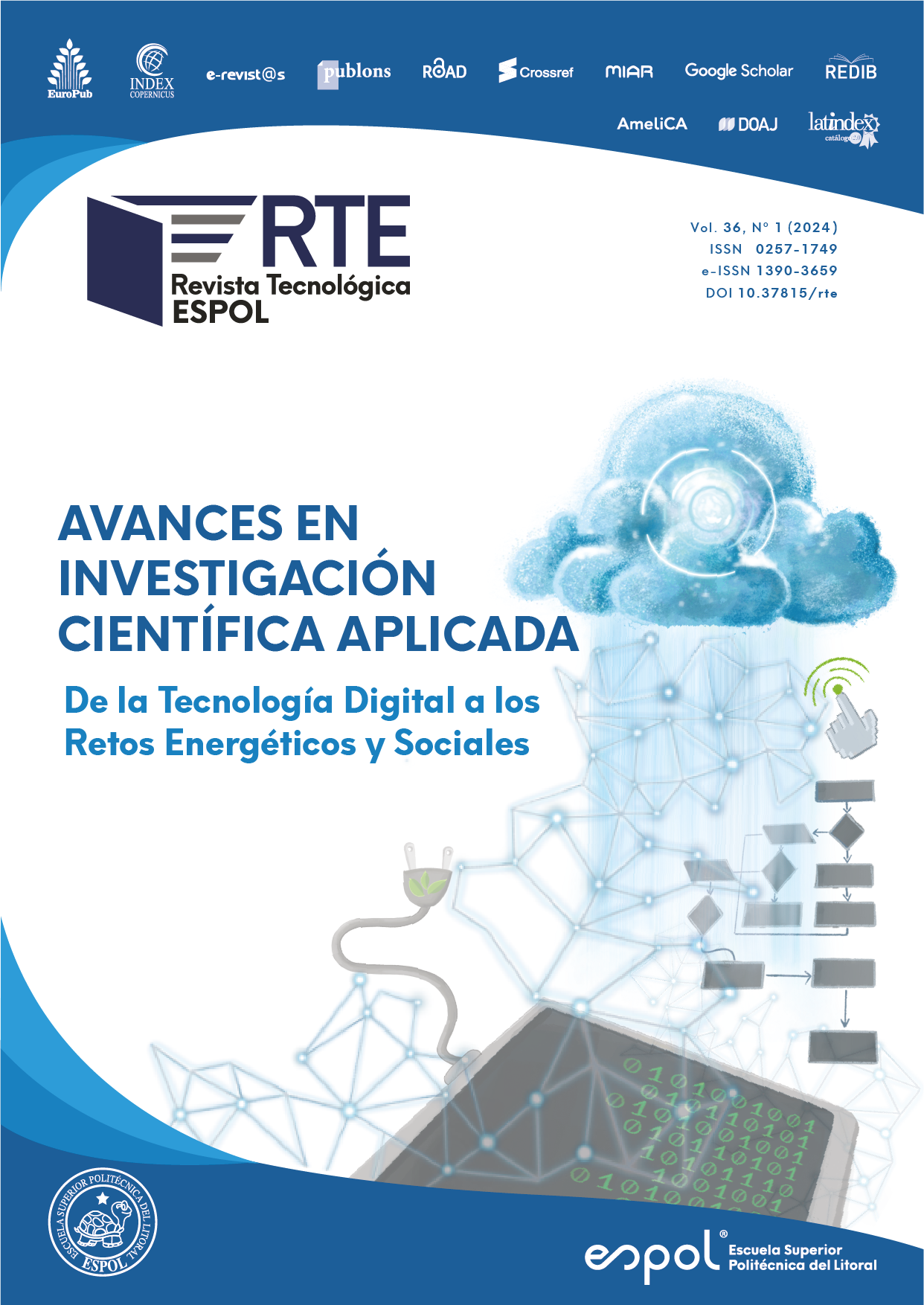Esta investigación se centró en el derecho informático y los sistemas de información en Ecuador. El objetivo fue analizar la perspectiva jurídica y tecnológica del derecho informático y su influencia en los sistemas de información en el contexto ecuatoriano. Se estableció un protocolo de revisión PRISMA para obtener la bibliografía y se aplicaron técnicas avanzadas como Word2Vec y análisis de similitud del coseno en dos corpus lingüísticos distintos (español e inglés). Los dendrogramas proporcionaron una representación visual, destacando los grupos de artículos y la complejidad de la relación entre derecho informático y sistemas de información. La comparación entre los corpus resaltó similitudes y diferencias, como la conexión más marcada entre dos artículos del corpus en español. El estudio reveló conexión significativa entre el derecho informático y los sistemas de información, destacando temas comunes como delitos informáticos, protección de datos y propiedad intelectual. Se identificaron vínculos respaldados por la legislación ecuatoriana en áreas como la protección de software y el comercio electrónico; sin embargo, se subraya la necesidad de una implementación efectiva de las leyes y una cooperación internacional más amplia para abordar desafíos como la delincuencia informática. El estudio puso de manifiesto las disparidades y conexiones entre el derecho informático y los sistemas de información en Ecuador. Se resalta la necesidad de adoptar un enfoque interdisciplinario para futuras investigaciones.

Esta obra está bajo una licencia internacional Creative Commons Atribución-NoComercial 4.0.
Referencias
Almonte, M. (2019). Blockchain y propiedad intelectual: investigación sobre sus avances y posibles usos. Anuario Dominicano de Propiedad Intelectual, (6), 41-63.
Barraza, C. (2018). Manual para la Presentación de Referencias Bibliográficas de Documentos Impresos y Electrónicos.
Batubara, F. R., Ubacht, J., & Janssen, M. (2018). Challenges of blockchain technology adoption for e-government: a systematic literature review. In Proceedings of the 19th annual international conference on digital government research: governance in the data age.
Camacho, J., Gamboa, S., & Gómez, L. (2020). Seguridad de la información en sistemas de resolución de disputas en línea (ODR): Revisión de Literatura y análisis a la luz del contexto colombiano. Revista Espacios, 41(19), 140-153.
Chica, C., & Marín, O. (2017). Perspectivas de la Conciliación Virtual en Colombia. Institución Universitaria de Envigado, 1, 1-14.
Clarke, R. (2019). Regulatory alternatives for AI. Computer Law & Security Review, 35(4), 398-409.
Dany, A. (2021). Autenticidad y debido proceso en los mensajes de Whatsapp: Una revisión en los casos de divorcio. Revista Chilena de Derecho y Tecnología, 10(2), 123-148.
Del Canto, E., & Silva, A. (2013). Metodología cuantitativa: abordaje desde la complementariedad en ciencias. Revista de Ciencias Sociales, pp. 24-34.
Eboibi, F. E. (2017). A review of the legal and regulatory frameworks of Nigerian Cybercrimes Act 2015. Computer law & security review, 33(5), 700-717.
Estupiñan García, L. M., Villamil Guerrero, H., & Jiménez Rodríguez, E. A. (2019). Condiciones de Seguridad y Salud en el Trabajo de los Teletrabajadores: Revisión Sistemática. Revista de Pensamiento Americano, 12(23), 94-104.
Farías, J. J. C., Romero, V. J. S., Lumbano, C. A. S., & Millingalle, J. V. C. (2023). Implementación de sistemas de factuación electrónica en el marco del derecho informático: Desafíos y oportunidades para el desarrollo de sitios web en Ecuador. Revista Científica FIPCAEC, 8(3), 259-281.
Farías, V. J. S., Romero, C. A. S., Lumbano, C. A. S., & Millingalle, J. V. C. (2023). Implementación de sistemas de facturación electrónica en el marco del derecho informático: Desafíos y oportunidades para el desarrollo de sitios web en Ecuador. Revista Científica FIPCAEC, 8(3), 259-281. T.,
Ferreira, A., & Sandner, P. (2021). EU search for regulatory answers to crypto assets and their place in the financial markets’ infrastructure. Computer Law & Security Review, volume 43.
Greenleaf, G., Mowbray, A., & Chung, P. (2018). Building sustainable free legal advisory systems: Experiences from the history of AI & law. Computer Law & Security Review, 34(2), 314-326.
Gutiérrez, C. A., & Tibiriça, B. (2016). Marco civil de internet en Brasil y referentes en la región Americas. Universidad Distrital Francisco José de Caldas, 30.
Henao, S., et al. (2016). Políticas públicas vigentes de salud mental en Suramérica: un estado del arte. Revista Facultad Nacional de Salud Pública, 34(2), 184-192.
Independently published: Amazon Books. (2023). El abogado del futuro: Un análisis de lo que le espera al Derecho y a la Abogacía en el Futuro Cercano.
Iracelay, J. (2019). Prólogo revista Fiadi segunda época no. 7. Revista Iberoamericana de derecho informático (segunda época), 7, 9-11.
Janetsy, G. (2022). Sistematización de la Justicia Informática. Quito: Corporación de Estudios y Publicaciones.
Jaoude, J. Abou, & Saade, R. George. (2019). Blockchain Applications – Usage in Different Domain. IEEE Access, 7, 45360-45381.
Kumar, M. (2021). Emergence of blockchain-technology application in peer-to-peer electrical-energy trading: a review. Clean Energy, 5(1), 104-123.
Luna, J. (2019). La actuación ética en el ejercicio profesional del contador y la aplicación de la responsabilidad social empresarial. Quipukamayoc, 27(55), 79-86.
Macías-Lara, R. A., Andrade, M. F. B., Angulo, F. Q., Loor, J. J. M., Estupiñan-Troya, G., & Vizuete, J. D. R. (2022). Casos frecuentes, penalización y prevención de los delitos informáticos en el Ecuador: una breve revisión sistemática. Sapienza: International Journal of Interdisciplinary Studies, 3(2), 231-243.
Maniadaki, M., Papathanasopoulos, A., Mitrou, L., & Maria, E. A. (2021). Reconciling remote sensing technologies with personal data and privacy protection in the European Union: Recent developments in Greek legislation and application perspectives in environmental law. Laws, 10(2), 33.
Martínez, C., & Cruz, Y., (2018). Tendencias tecnológicas y desafíos de la seguridad informática. Polo del Conocimiento, 3(5), 260-279.
Mina, M. E. (2019). Informática forense: una revisión sistemática de la literatura. Revista de Ciencias Humanísticas y Sociales, 4(2), 126-145.
Moia, L. (2022). El salvataje en el concurso preventivo de las empresas de interés cultural. Una relectura de las normas y su aplicación. Papeles de Centro de Investigación, 13(24), 240-254.
Neil, D., & Cortez, L. (2017). Procesos y fundamentos de la investigación Científica. Macchala: Colección Editorial REDES.
Palmiotto, F., & Menéndez, N. (2023). Facial recognition technology, democracy and human rights. Computer Law & Security Review, 50.
Peña Guano, S. I., Castillo Cruz, E. R., & Peña Guano, P. M. (2018). Elementos de ciberseguridad en los países en desarrollo y su. Serie Científica de la Universidad de las Ciencias Informáticas, 16(12), 1-18.
Perasso, V. (2016, Septiembre 15). Qué es la cuarta revolución industrial (y por qué debería preocuparnos). Recuperado de https://www.bbc.com/mundo/noticias-37631834
Rodríguez Póo, J. M., & Salcedo Galiano, A. (2021). Estadística oficial y evaluación de políticas públicas: oportunidades y retos. CICE, 102, 52-67.
Rodríguez, G. S. (2021). Tecnologías disruptivas: Contexto Político-Jurídico, Desafíos y Oportunidades en Latinoamérica. LEX-revista de la Facultad de derecho y ciencias políticas, 19(28), 41-74.
Salas Andres, R. (2018). Regulaciones de privacidad de datos online en Chile y Australia. Revisión crítica y desafíos futuros. Latin American Legal Studies, 3, 97-134.
Schwab, K. (2016). La Cuarta Revolución Industrial. Debate, Madrid.
Svantesson D. (2018). Jurisdictional issues and the internet–a brief overview. Computer Law & Security Review, 34(4), 715-722.
Trivedi, S., Mehta, K., & Sharma, R. (2021). Systematic Literature Review on Application of Blockchain Technology. J. Technol. Manag. Innov. 16(3), 89-102.
Triviño, R., et al., (2019). Regulación de la Neutralidad de Red en Sudamérica: Una revisión del progreso. Latin American Journal of Computing, 6(1), 17-26.
Valencia Ramón, L. Y., & Corona Ferreira, A. (2021). Expediente clínico electrónico: Estado del arte. Revista Científica de Salud UNITEPC, 8(1), 21-34.
Yang, W., et al. (2023). Blockchain for Credibility in Educational Development: Key Technology, Application Potential, and Performance Evaluation. Security and Communication Networks, 2023, 14.
Zhang, Z., & Zha, Y. (2023). Systematic construction of lawfulness of processing employees’ personal information under China's personal information protection law. Computer Law & Security Review, 50.







